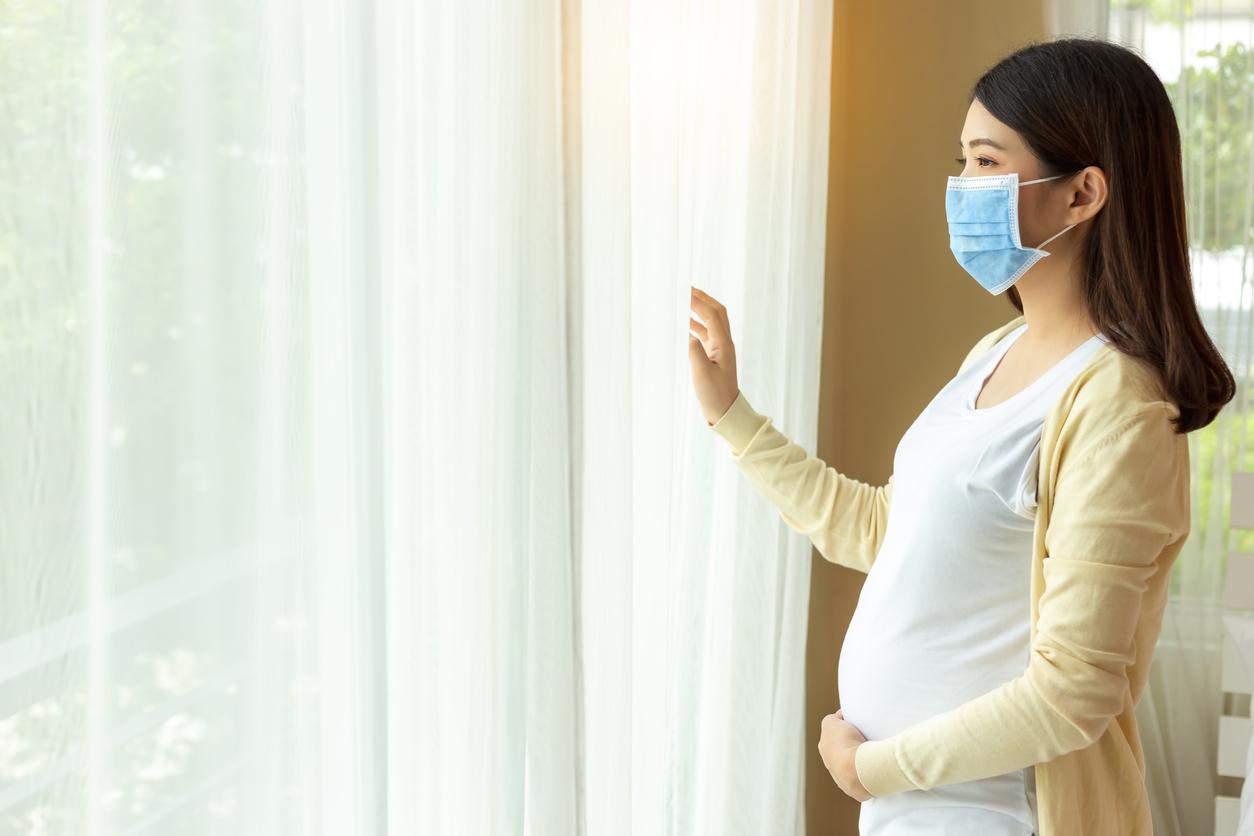COVID-19 during pregnancy is tied to dramatically higher rates of maternal death, preeclampsia, preterm birth, and infection and severe outcomes in newborns, according to two new studies.
Risk of maternal death 22.3 times higher
In the first study, published yesterday in JAMA Pediatrics, a team led by University of Oxford researchers studied 2,130 pregnant women age 18 and older and their newborns at 43 institutions in 18 countries from March to October 2020, as part of the observational INTERCOVID Multinational Cohort Study. For each woman who tested positive for COVID-19 before delivery, two unmatched, uninfected women were enrolled at any stage of pregnancy or delivery.
The 706 COVID-19 patients were at much higher risk than their 1,424 uninfected counterparts for preeclampsia/eclampsia (relative risk [RR], 1.76), pregnancy-related high blood pressure (RR, 1.46), infections requiring antibiotics (RR, 3.38), intensive care unit (ICU) admission (RR, 5.04), referral to a higher level of care (RR, 6.07), death (RR, 22.3), preterm delivery (RR, 1.59), medically indicated preterm delivery (RR, 1.97), severe neonatal illness (RR, 2.66), and severe perinatal illness and death (RR, 2.14).
"Importantly, women with COVID-19 diagnosis, already at high risk of preeclampsia and COVID-19 because of preexisting overweight, diabetes, hypertension, and cardiac and chronic respiratory diseases, had almost 4 times greater risk of developing preeclampsia/eclampsia, which could reflect the known association with these comorbidities and/or the acute kidney damage that can occur in patients with COVID-19," the researchers said.
Compared with uninfected women, those who tested positive for COVID-19 had a lower rate of spontaneous labor but higher rates of cesarean birth and preterm delivery and fetal distress (RR, 1.59 and 1.70, respectively). The most common indications for preterm delivery among women with a COVID-19 diagnosis were preeclampsia/eclampsia (24.7%), small for gestational age (15.5%), and fetal distress (13.2%).
Of the COVID-19 patients, 13% of their 416 newborns tested were also positive for coronavirus. Exclusive breastfeeding and newborn test positivity were not linked (RR, 1.10).
Cesarean birth was link to increased risk of newborn infection (RR, 2.15), while breastfeeding was not (RR, 1.10). Mean maternal age was 30.2 years, and 48.6% of infected women were overweight early in pregnancy, compared with 40.2% of uninfected women.
Of the women with a coronavirus diagnosis, 1.6% died (maternal death ratio, 159 per 10,000 births); four of them died of severe preeclampsia, three of respiratory failure requiring mechanical ventilation, and one of a pulmonary embolism. Five women had worsening respiratory failure before delivery, two of whom underwent cesarean delivery and later died, and two developed cough, shortness of breath, and fever within 7 days after a normal delivery and died. Among the uninfected women, one died due to preexisting liver cancer and cirrhosis.
Women infected with SARS-CoV-2 stayed in the ICU for, on average, 3.73 days longer than uninfected women. Increased risk of serious maternal complications in COVID-19 patients was tied to fever and shortness of breath (RR, 2.56), as were complications in newborns (RR, 4.97). But the 44.0% of infected women with no symptoms were at higher risk for only maternal illness (RR, 1.24) and preeclampsia (RR, 1.63).
"In this multinational cohort study, COVID-19 in pregnancy was associated with consistent and substantial increases in severe maternal morbidity and mortality and neonatal complications when pregnant women with and without COVID-19 diagnosis were compared," the authors concluded. "The findings should alert pregnant individuals and clinicians to implement strictly all the recommended COVID-19 preventive measures."
Social vulnerability and infection
In the second study, published today in JAMA Network Open, a team led by Harvard Medical School researchers assessed the association between clinical and sociodemographic factors and COVID-19 test positivity in 255 newborns of 250 women diagnosed as having coronavirus at 11 hospitals in Massachusetts with delivery from Mar 1 to Jul 31, 2020.
Of the 225 newborns tested for COVID-19 infection, 2.2% had positive results. Newborn infection was linked with preterm birth triggered by worsening maternal illness.
High maternal social vulnerability, defined by maternal ZIP code, was tied to a higher risk of newborn COVID-19 test positivity (adjusted odds ratio, 4.95) after adjustment for maternal coronavirus symptoms, delivery type, and rooming-in practice.
"We found that high social vulnerability, defined by the maternal zip code, was associated with a nearly 5-fold higher risk for neonatal test result positivity, although individual-level race/ethnicity and language status were not associated with a higher risk for neonatal test result positivity," the researchers wrote.
The researchers said that socially disadvantaged mothers may have less access to healthcare, face bias and discrimination, and be under chronic stress, which decreases antiviral immune responses.
Among the 121 infants with follow-up information from the 30 days after hospital release, 28 had non-routine clinic visits, 7 were tested for COVID-19, and 1 had a positive test result. Mean gestational age at birth was 37.9 weeks, and 24.3% of newborns had a low birth weight or were born preterm. Mean age among the mothers was 30.4 years, and 48.4% were Hispanic.
"Results of this study indicate that neonates who were perinatally exposed to SARS-CoV-2 can sustain adverse health outcomes both directly (as evidenced by higher test result positivity rates when born to socially vulnerable mothers) and indirectly (given the sequelae of preterm birth)," the authors said.





















